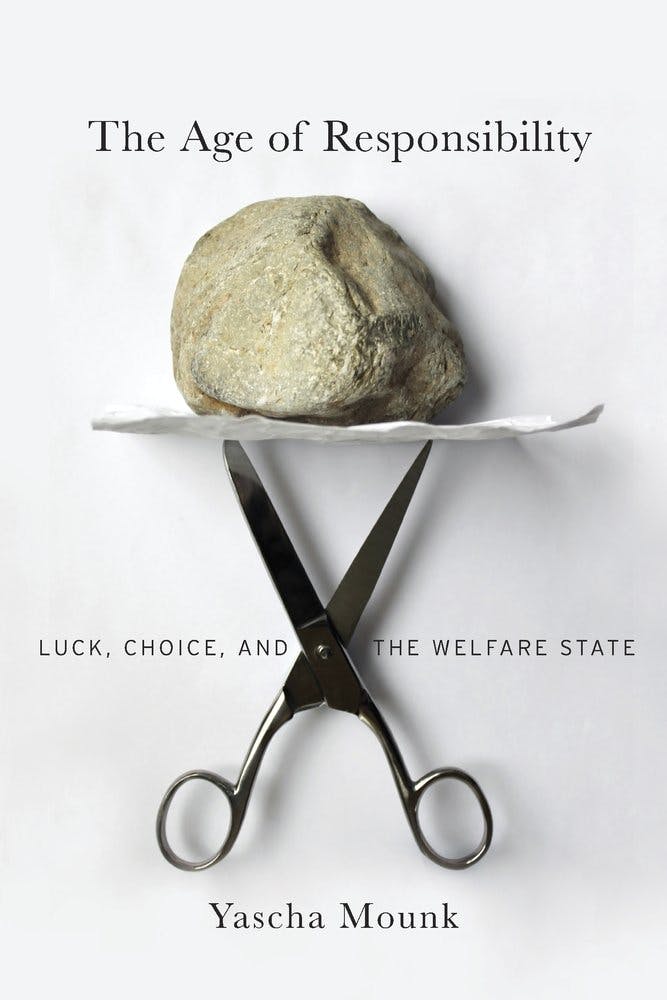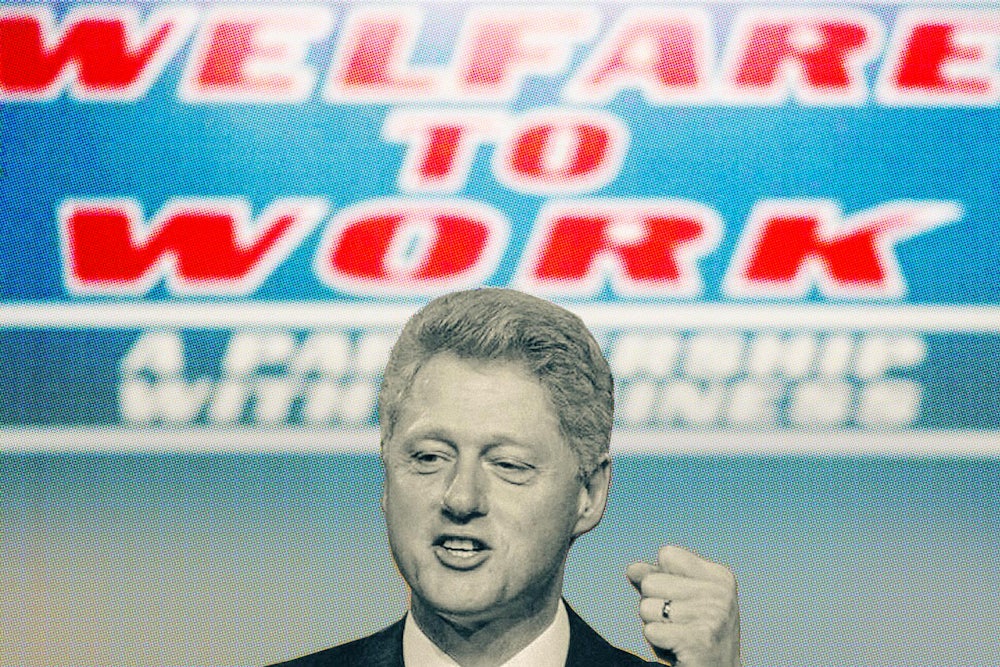In 2014, when Paul Ryan was trumpeting his soon-to-be-released anti-poverty plan, he accused welfare recipients of suffering from a “culture problem.” “We have to re-emphasize work and reform our welfare programs, like we did in 1996,” he stated in a radio interview:
We have got this tailspin of culture, in our inner cities in particular, of men not working and just generations of men not even thinking about working or learning the value and the culture of work.
Immediately, liberals pounced on Ryan’s racist “poor people are lazy” rhetoric. Charles Blow at the New York Times wrote, “When we insinuate that poverty is the outgrowth of stunted culture … we avert the gaze from the structural features that help maintain and perpetuate poverty.” The Daily Beast’s Jamelle Bouie asserted that Ryan wanted to blame black people for their own ills, without acknowledging that “inner-city poverty didn’t just happen, it was built” through decades of racist policies. Over at Jacobin, Keeanga-Yamahtta Taylor wrote that only the “reintroduction of the ideas of structural inequality, institutional racism, and injustice can make sense of the reality millions of African Americans find themselves trapped in.”
It is a ballet that has played itself out in American politics over and over again: The right argues that poor people are living in poverty because of their individual failings. In response, the left insists that in fact a historically racist system, bad education, segregated housing, and stagnating wages are to blame. The debate revolves around the idea of whether or not someone can be held personally responsible for their outcomes: The right argues that most people can be held responsible, while the left answers that most people cannot. The left is correct in pointing out the overwhelming evidence that shows the huge role that structural issues play. But their failure lies in agreeing to engage with these terms at all.
In his new book, The Age of Responsibility, Harvard lecturer Yascha Mounk argues that this “responsibility framework” is woefully inadequate and leaves liberals hamstrung. Debating “who bears responsibility for what” diverts us away from the more important question of how we can foster “equality and solidarity in capitalist democracy.” Instead of denying that responsibility ever plays a role, the left should, Mounk argues, often ask a simple question: Why do we predicate the receipt of benefits on personal responsibility at all?
It was not always this way. Although responsibility rhetoric is nothing new, it has transformed over the past few decades: During the Cold War, politicians embraced the idea of “responsibility-as-duty,” the notion that people had a collective responsibility to sacrifice for the nation in order to uphold freedom in Western society. But by the 1980s, Ronald Reagan’s rhetoric, which focused on the individual achievement of the American dream and the racist scapegoating of “welfare queens,” who he claimed were gaming the system, converted the idea of “responsibility-as-duty” into one of “responsibility-as-accountability.” Reagan pushed the belief that if someone made bad choices in life, they did not deserve any help from the government. The primary role of the welfare state then became to punish those who were not thought to live responsibly (mainly poor people and minorities) and reward those who did (mainly rich, white people).

Since then, politicians both on the right and the left have run with this punitive idea of responsibility. As Bill Clinton signed the 1996 welfare reform bill (aptly termed the Personal Responsibility and Work Opportunity Reconciliation Act), he famously declared, “this legislation provides an historic opportunity to end welfare as we know it and transform our broken welfare system by promoting the fundamental values of work, responsibility, and family.” The shift, Mounk argues, was not limited to the United States. Britain’s prime minister, Tony Blair, emphasized the same ideal as Clinton, asserting that “the left argued for rights but were weak on responsibilities.” In France it was “responsabilité individuelle,” in Italy “responsabilità individuale,” in Poland “odpowiedzialność osobista.”
This heralded what Mounk terms the “Age of Responsibility”—a change so sweeping that it has become deeply entrenched in politics around the world. The result, in America at least, is telling: Since welfare reform, the numbers living in extreme poverty (defined as $2 per person, per day) in the United States have risen drastically, from 636,000 households to 1.65 million. States are threatening to add work requirements to entitlement programs like Medicaid. We now have an administration that wants to cut $272 billion from welfare programs.
The solution that Mounk proposes is no less radical: to reinvent the idea of personal responsibility itself. To argue for the need for this, Mounk runs through some of the pitfalls of the left’s response of denying that people have personal responsibility. First off, it’s counterintuitive. As Mounk notes, “ordinary people have reason to value responsibility, and they recognize this fact.” By denying that poor people and minorities have agency over their lives, liberals inadvertently diminish them.
It would be more effective, Mounk argues, to push for a “positive conception of responsibility,” one that “reminds us that our political institutions exist for a reason: In particular, the welfare state is meant to ensure the equal standing of all citizens, to give people assurance that they will continue to have access to the material goods they need to live a life of simple dignity” and to “facilitate a life full of meaningful, freely endorsed responsibilities.” Importantly, it would require us to put forward a positive vision for our welfare system; things like health care for all, free college, and guaranteed economic security.
What, in practice, would it mean to push for a welfare state that facilitated freely endorsed responsibilities? A good example is to look at the choice to have a child. For many people, having a child while they are young and healthy might mean that they might be forced to raise that child in poverty because of, say, the exorbitant costs of child care, relatively lower salaries for early-career employees, and lack of affordable housing. This, of course, is not really a choice at all. Thus only a welfare state that provided some sort of subsidized child care, universal basic income, and high-quality public housing, allowing parents to raise children without the fear of being relegated to poverty, would empower a meaningful, responsible choice when it comes to childrearing.
It’s important to note that Mounk purposely stops short of actually proposing a vision of society, stating, “It is ultimately up to the people to decide how important it is for them that their institutions should support them in caring for their children or in tending to their sick relatives.” His goal is to reveal the inadequacy of the current strategy of the left to break out of the constrictive framework that the right has erected around them.
It’s also crucial to point out that personal responsibility rhetoric in America, at least when it comes to welfare reform, has been, in large part, about white supremacy. Reagan’s “welfare queen” and Ryan’s “inner cities” all play into white people’s fear of black people bilking the benefit system and a desire to punish them for their supposed choices. Thus, a huge obstacle for any push to define our welfare state as an institution that has the collective duty to offer both societal and material equality to people is, of course, racism.
Which leaves us with an immense, but necessary task: to reimagine our welfare state as one that endorses a positive, collective concept of responsibility, whose primary goal is to ensure material and social equality for all people; to blow up the deep-rooted assumption that we should hold people accountable by denying them benefits. The post-New Democrat left cannot fall into the same traps as their predecessors. There is perhaps no better time than now for a radical rethinking of the purpose of both our policy institutions and political rhetoric.
